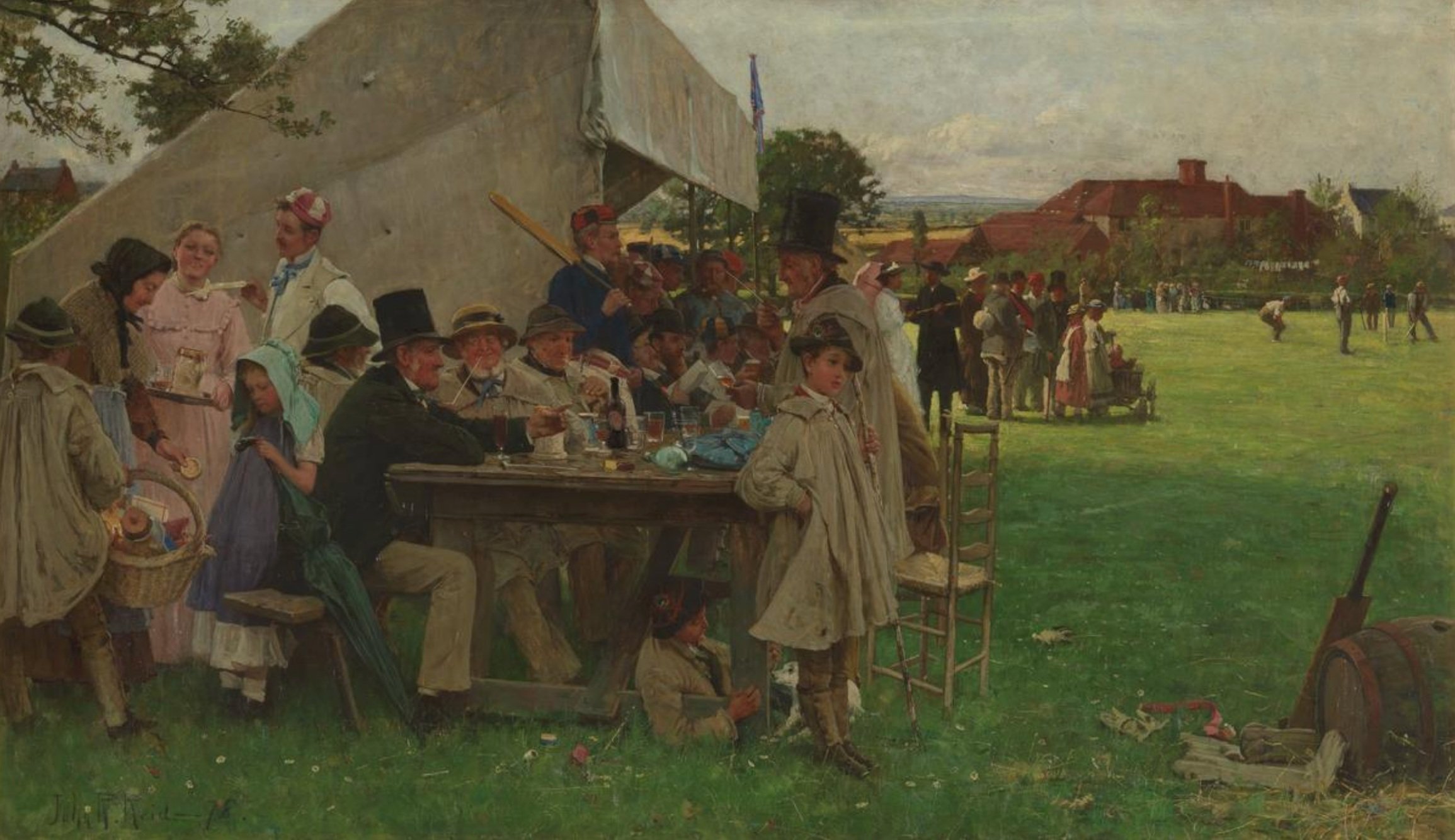The Sticky Wicket: When Leadership Impairs Personal Performance
A Country Cricket Match. 1878, John Robertson Reid
My father was rather a good cricketer. As a young man he was offered a playing position by the Sussex county team (one he couldn’t afford to take up), and he continued to keep wicket for the Noak Hill village side well into middle age.
I too loved cricket as a child - playing with Martin in the back garden on long hot summer days; watching games on the TV with the sound down and Test Match Special on the radio; accounting for every ball in my scorebook; making trips to Chelmsford with Neil Renshaw to see Essex. (It was the golden era of John Lever, Ray East and David Ackfield, and I packed home-made oat biscuits for lunch.)
It was a sadness therefore that I wasn’t actually a good cricketer. Having poor hand-to-eye coordination, most spells at the crease ended early, with bruised shins and pride. I did develop a rather eccentric, high-kicking leg-spin action. But it was too variable and comical to be relied on.
'You have to try to reply to criticism with your intellect, not your ego.'
Mike Brearley
I read recently about a study into the differing cricketing performances of batsman and bowler captains. (Kaya Burgess, The Times, 17 July 2024)
Researchers from the Central European University in Vienna and the Indian Institute of Science Education and Research analysed 4,400 men’s one-day international (ODI) matches and 2,800 players who competed between 1971 and this year.
The findings suggest that there is a ‘differential impact of captaincy on distinct player types.’ When batsmen were named captain, they scored an average of 16% more runs. However, when bowlers were promoted to skipper, they took 18% fewer wickets.
Batsmen, the study speculates, may see captaincy as an opportunity to ‘lead through exemplary performance.’ Bowlers, however, ‘may experience captaincy as a burden.’ It is also possible that captain-bowlers have a tendency to put themselves in ‘to bowl at the wrong time to relieve the team pressure.’
’Captaincy is 90% luck and 10% skill. But don’t try it without that 10%.’
Richie Benaud
This research prompted me to reflect on the communications industry, and Strategists who take on Agency leadership roles. Is there a ‘differential impact of captaincy on distinct player types?’ Do Planners perhaps ‘experience captaincy as a burden?’
Of course, we can all think of some amazing industry leaders who began their careers as Strategists (the Imran Khans and Kapil Devs of advertising). But when I consider Planners as a type, I’m not sure we generally have the mental toughness, the commercial and relationship skills, to lead on our own. We tend to be more cautious, more introverted, more pensive souls.
In the second half of my Agency career, I was part of a three-person leadership team. Within this structure, as Chairman, I could help set the overall direction of the business, and still contribute to its strategic output.
I may have lacked the technical skills, confidence and ambition to be a CEO. But I did know when to leave the pitch. The aforementioned cricket research study established that, after losing the captaincy, both batsmen and bowlers saw a marked decrease in their performance standards, below their pre-captaincy levels.
‘Cricket, lovely cricket,
At Lord's where I saw it.
Cricket, lovely cricket,
At Lord's where I saw it.
Yardley tried his best,
But Goddard won the test.
They gave the crowd plenty fun,
Second Test and West Indies won.’
Lord Beginner, ‘Cricket, Lovely Cricket’
(Marking the West Indies’ first victory over England in England, at Lord's in 1950)
No. 485
